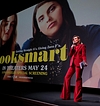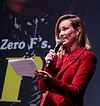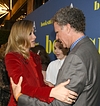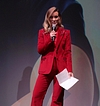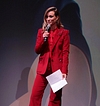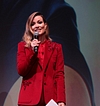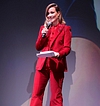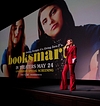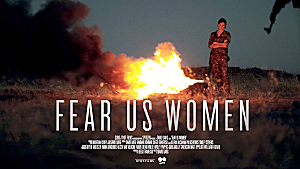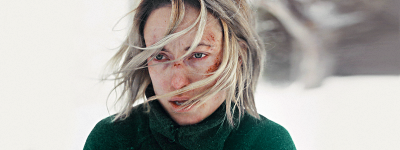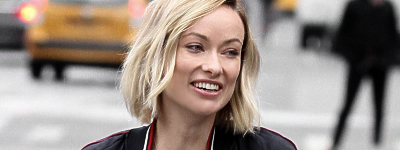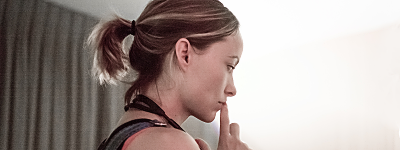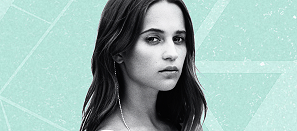Olivia Wilde has returned to TV for her first series since House in HBO’s recently-debuted Vinyl. Wilde plays Devon Finestra, who we first meet in the 1970s, alongside her record producer Richie husband, (Bobby Cannavale), in a music industry-centric series from the impressive trio of Boardwalk Empire creator Terence Winter and his fellow executive producers Martin Scorsese and Mick Jagger.
I spoke to Wilde about Vinyl and Devon’s intriguing backstory and history — both with and without Bobby — and how there is much more to the role than it may seem at a glance.
IGN: When you’re first introduced in the pilot, it’s in a very domestic situation, and I’ll admit, my first thought was, “I hope she’s not just playing ‘the wife.’” But what stood out to me was the moment when he mentions being at this club and you casually go, ‘Oh are they still selling sex there?” She’s clearly knowledgeable about his world.
Wilde: It’s interesting that you picked that up because that was something Bobby and I really loved about that scene. It established that these two are best friends. She’s supportive. He’s honest with her about everything. The only line she has that he’s not allowed to cross is sobriety. That’s why that scene at the end [of the pilot] is so destructive, because there’s one thing she asks. And you find out later in the season why they both had to become sober and why it’s an important decision and why he’s clearly disturbed past the point of self-recognition. He is now in a dark place that has caused him to forget this agreement and decide, as she says, that they’re not worth it any more. But I love that scene and I love that specific line. It says so much about their relationship. And going forward, as Devon and Richie go through this intense change and everything falls apart, you see that connection is something that can’t be dismantled. The respect and love they have for each other, that connection, that friendship is something real and stable that can never go away.
IGN: It doesn’t have to be the dynamic of, “Oh, I was at a business meeting.”
Wilde: If you see that, you’re like, “Alright, then it’s Don Draper.” It’s a very different relationship.
IGN: The group of people making this series is pretty remarkable. What were your first conversations like about the role?
Wilde: I first heard about it because I knew that Marty was working on a show for HBO with Mick. I heard the slight history of the show and how they were going to make it into a film at one point. I thought, “Oh, that’s a really smart to make that into a show. That’s great, because they can show more about the music industry and take more time with it.” When they said, “Marty wants you to be a part of it,” I was thrilled, floored, gobsmacked, but obviously wanted to make sure, as you said, I wasn’t just the suburban wife, because I thought that’s not the right role for me at this time. I’ll watch the show but it’s not the right role for me. Which is what I told HBO. I said, “I’m so honored but tell me what’s in store for this girl.”
Terry [Winter] was very helpful with that, very inspiring and collaborative about what we could do with Devon together. Marty was very excited about what she could become. Bobby was adamant that she should be his match, that there was so much to be said about women at that time. He loves powerful women and he was very collaborative as we built her in the pilot. We did a lot of reconstructing of Devon once I was cast and we all started chatting. So from that point on, it set the tone of collaboration that has continued throughout the series. Season 1 was so thrilling because it was always a conversation of how we make her more dynamic and less predictable. The writers did a tremendous job. Often I would read the scripts and go, “Holy s**t, Devon!” She’s wild. The pilot introduces you in a way that will make people surprised by her. I like that it’s a tiny bit of a misdirect.
IGN: Yeah, we quickly see that the life she’s in now is not the life that she had a few years ago.
Wilde: It’s a recently assembled house of cards. She was a staple in the Warhol factory, she was very close with Andy, more a muse and a friend than a party associate. Like 1965, 66 was really a part of that world and there were a lot of interesting things happening at that time that she was involved with. Not the business end like Richie, but very much a part of the scene and knowledgeable about the scene and appreciative of that work. She’s an artist herself. You find out in what capacity as the series goes on but she was definitely hard living. They were parties. That’s why they made this decision together to get out in order to survive.
She’s a little more in control than Richie and that is revealed in several different ways, but we hint at that through flashbacks to her past as well, which are coming up and are really fun. She was very much the kind of woman that is sort of an amalgamation of the different feminine icons of the mid to late 60s in that scene. Whether it’s Edie Sedgwick, Marianne Faithfull… She was incredibly stylish, incredibly plugged in, and living her life exactly as she chose to, which is why it’s so unfamiliar for her to find herself in this very sterile, suburban environment.
IGN: The whole Warhol thing is pretty fascinating on its own. Did you learn a lot about him doing the show?
Wilde: I learned a lot and I grew up appreciate his work so much more once I learned about his background and his process. I was shooting another film in Pittsburgh before we started the series, where the Warhol museum is, and that is an extraordinary place. I would go and hang out there and the writers did an amazing job of recreating the most amazing elements of that world. I can’t wait until people see that and see how different this take on him, in particular is. We’ve always seen Warhol in a slightly more chilly kind of interpretation than this one. You understand why he brought so many people to him and why he inspired a movement in art and culture. For Devon, it explains a lot about her once you see her interactions with him. But I love that Devon is a chameleon. She can exist comfortably in this world of Greenwich, Connecticut. She can exist with Richie at these galas in the music industry. She can also exist with the bohemians. She’s someone who can adapt but it means you also don’t ever know who she is in that moment and where she’s going to end up. For an actress, that makes it very interesting.
IGN: With dramatic period pieces, you often hear that while it can be fun to get into the period clothes and sets, you also want to make sure it’s not parody. What was it like recreating the 1970s here?
Wilde: I think having Mick and Marty, who were there in the New York area in the early 70s, kept us authentic. Anytime anything seemed even slightly cartoonish, they reigned it in, from the costumes to the hair to the set design. The authenticity was so thorough that there was one moment it all came to a head for me. We were in Harlem shooting what was supposed to be the outside of the Chelsea hotel – but we have to shoot in Harlem because now the West Village looks way too different. We were in Harlem and a bus went by in the scene behind Bobby in the background. During the break I went and peaked in the bus. It was a 1970s bus. All the extras were vintage 70s. The newspapers they were reading were 70s and there was trash strewn about that was 70s trash. This was a bus that was just driving by. So that’s the level of attention to detail. I think that adds texture and authenticity and it all comes from the fact that the show is being produced by people who were not only there but in many ways established what the culture was at the time.
By
